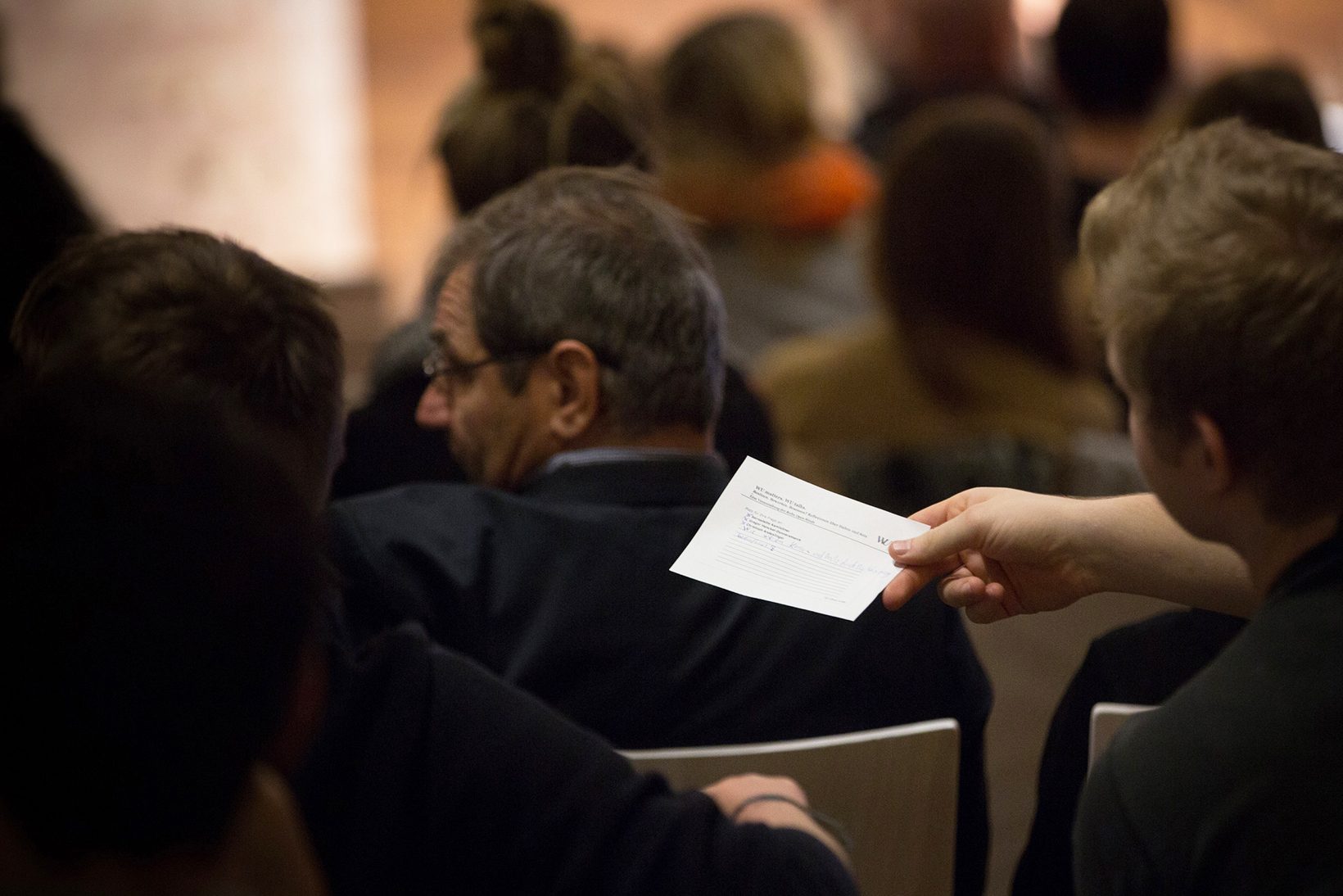Cooperation with companies and participation in the discourse at conferences are extremely valuable for WU, as they allow us to build up a productive network connecting academics and business. As a public university, WU has a responsibility to society and the economy, and plays an active role in shaping them. It is one of our stated goals to make sure that knowledge generated at WU is made available to the community, to contribute to finding sustainable, innovative solutions to today’s problems.
Energy & Strategy Think Tank
The Energy & Strategy Think Tank was established at WU’s Institute for Strategic Management in 2013, in cooperation with OMV AG. This knowledge network is intended to support research and the development of business models and innovation in the energy sector. Wien Energie came on board as a new partner in 2017.
Knowledge Transfer
Blockchain technologies, artificial intelligence, the advancement of women, and tax law are just a few of the topics covered by conferences at WU in 2017.

Globalization or isolationism? Free trade, yes or no? – Organized by the Institute for Multi-Level Governance and Development and the Competence Center for Sustainability, the Good Life for All Congress, held at WU, featured around 140 experts who discussed these and many other questions. More than 1,000 people attended the congress on Campus WU in February of 2017.
Boards of directors and supervisory boards have always had to deal with uncertainties when making decisions. But digitalization, globalization, and sociopolitical changes have markedly increased the scope and extent of these uncertainties. Accordingly, the 7th annual Austrian Supervisory Board Conference at WU was titled, “Uncertainty – Risk or Opportunity?” Workshops, expert talks, and round-table discussions focused on the new role profile of supervisory boards and their shifting responsibilities in companies.
In March, WU hosted the 2nd International Conference on Taxpayer Rights. 150 participants from 44 different countries, government officials, representatives of the OECD and the EU, judges, researchers, and practitioners came together to discuss taxpayers’ rights in a globalized world.
Digitalization is changing our lives. Companies are also affected, as they may have to reconsider traditional business models. The 2017 Vienna Strategy Summit hosted by WU focused on this topic, showing how digital transformation can be an opportunity and how to find a comprehensive digitalization strategy.
Artificial intelligence, machine learning, and deep learning are research fields that have a comprehensive impact on our relationship to IT technologies. At the AI Summit in September, international experts came to WU to provide insights into their work. 400 visitors had the opportunity to find out first-hand how computers learn and how intelligent machines can be used most effectively in businesses.
Wir möchten Sie darauf hinweisen, dass nach der Aktivierung Daten übermittelt werden. Weitere Infos finden Sie in unserer Datenschutzerklärung.
European tax law was the focus of the 42nd annual conference of the Deutsche Steuerjuristische Gesellschaft, an association of German tax law experts. 300 attendees from the fields of academia, law, public administration, and consulting met at WU for two days to discuss European tax legislation and the EU’s fundamental freedoms. Additional topics included fighting tax evasion, tax benefits, and recent ECJ judgements.
Warum (noch) Frauen fördern? (Do women [still] need advancement?) was the title of a conference in November that analyzed the status quo of the advancement of women. Experts and participants discussed the effects of women’s advancement efforts in companies and the best areas for implementation.
On the occasion of the establishment of WU’s new Research Institute for Cryptoeconomics, WU hosted the 2nd Blockchain Summit on campus in December. Due to the high level of interest in this topic, the event was fully booked in record time. In nine workshops, over 350 participants developed ideas for new and innovative uses for blockchain technology.

